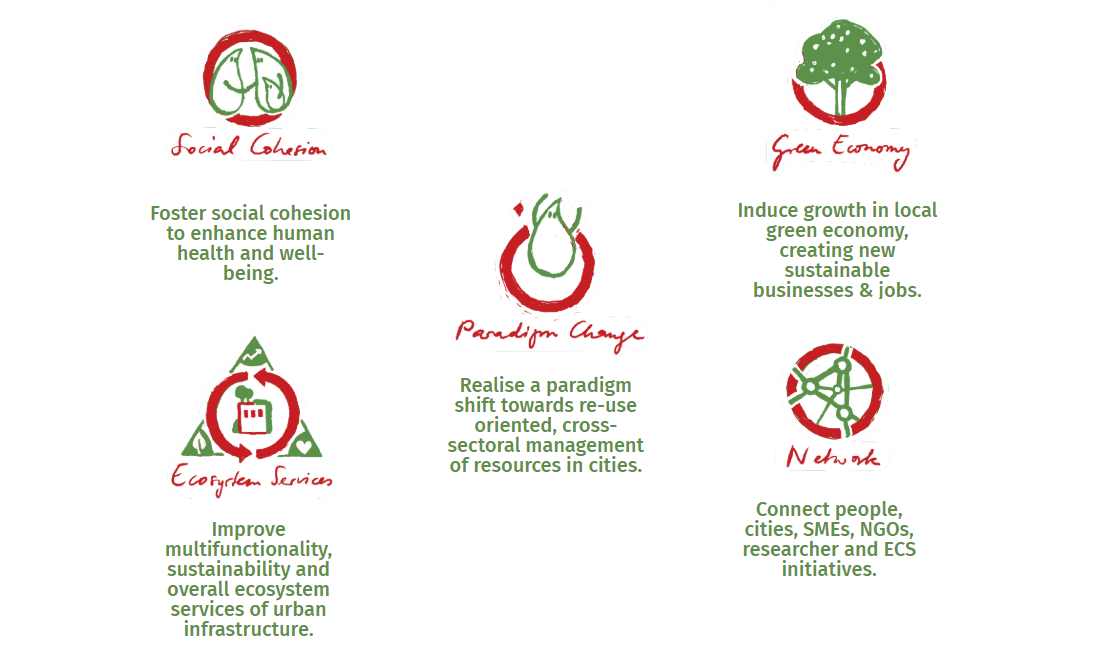The systemic use of urban landscapes for food production is a major step towards more sustainable, liveable and healthier cities. A multitude of initiatives around the world, however fragmented, are prospering, forming a global movement of Edible Cities. The products, activities and services of Edible City Solutions (ECS) empower local communities to overcome social distances by their inclusive and participatory dynamics and to create new green businesses and jobs, thereby generating local economic growth and fostering social cohesion.
EdiCitNet will leverage the substantial benefits that arise from ECS at a local level and catalyse their replication in Europe and world-wide by launching a fully open and participatory network of cities, empowering their inhabitants by a common methodology
- to systematically explore the wealth and diversity of existing ECS,
- to adapt, plan and implement successfully proven ECS in their specific urban context.
To make this happen, EdiCitNet will close knowledge gaps in the effective implementation of ECS and their transformation into sustainable, innovative business models. These new insights will feed into an openly shared and globally accessible knowledge base and methodology to enable sustainable and evidence-based integration of ECS in the long-term urban planning of cities covering a large spectrum of urban, climatic, social, environmental and cultural contexts.
Our Front-Runner Cities (FRC), supported by a highly interdisciplinary consortium of city authorities, SMEs, NGOs and academia, will demonstrate innovative but different forms of ECS within individual co-created Living Labs and transfer the knowledge generated to dedicated Follower Cities (FC), determined to replicate ECS for the benefit of their inhabitants. The careful selections of FRC and FC allow for the close observation of ECS implementation in a multitude of diverse environments and ensures truly global outreach with city partners based in five continents. In both FRC and in FC, all measures, plans and implementations are decided and implemented by City Teams that have been formed in advance and are as inclusive as possible, in order to test new planning techniques, increase transparency and identification and to involve different actors in the city society from the very beginning.



